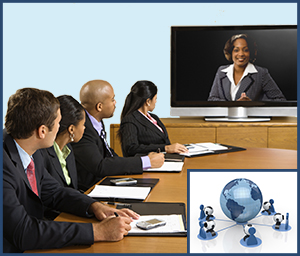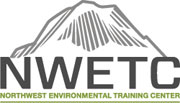Blog
Getting Meetings Off to a Good Start
-This post is the second in a series of three guest posts by NWETC Instructor Mike Fraidenburg. Mike will be presenting our new webinar, "Facilitating Remote and Online Meetings-Essential Success Skills" in August.

By Michael Fraidenburg
Owner, The Cooperation Company
What is the most important thing to do in starting a meeting?
- Go over the ground rules for the meeting?
- Introduce people if they don't know each other?
- Review the agenda?
Not really. These, in a sense, are facilitator tools for getting people working. In front of these is a need to get people motivated to do the work. People typically want to know why they should engage in your meeting. Do this by answering these questions as the start of your meeting.
Why am I here?
Why should I care?
What power do I have?
Will you make a good use of my time?
Answering these gives participants a reason to engage in your meeting. When people are engaged they will be more responsive to the facilitator tools you use in the meeting. Let’s explore how to use these questions.
Why am I here?
Answering this question lets participants know the purpose of the meeting and the product to be produced. It also is your chance to tell participants why their personal knowledge, skills, and abilities are needed for achieving the meeting purpose. Accomplish this by completing, in your opening remarks, sentences such as,
- We are here today to… [purpose or objectives]
- The specific deliverables we need by the end of the meeting are…
- The reasons we wanted you at this meeting are…
- When we are done, we will walk away with…
Why should I care?
Explain the ‘benefits’ of the meeting and why this meeting should be important to the participants. Refrain from talking about the ‘features’ of the meeting; e.g., teamwork, use of data, meeting format. Instead, answer WIIFM? (What’s in it for me?). Explain how the participants’ lives will be improved as a result of the meeting achieving its objectives. Accomplish this by completing sentences such as,
- Succeeding with this meeting means [insert one or more job attributes] will be [insert adjective or verb such as, “faster”, “cheaper”, “more accurate”. etc.].
- The gap we are facing is [insert gap statement]. By closing it we hope your life will be [easier, better, smoother, etc.] because we accomplished our objectives for this meeting.
- This is your opportunity to…
- Think about the result if we succeed in today’s meeting; for me it is…
What power do I have?
Describe the role participants will play or the authority that is given to them. Clear delegation of authority gives clear boundaries for participants to work within. If you don’t specify these the participants will stop your meeting to do it for themselves. Accomplish this by completing sentences such as,
- The amount of money we have to spend is…
- Today you are authorized to… [Define options…, Make a recommendation…, Decide about…]
Will you make good use of my time?
Get participants involved immediately. Accomplish this with an engagement question that furthers the meeting purpose, such as,
- What do you most want to see happen at this meeting to make sure we achieve our objectives?
Then follow that with the usual overviews of ground rules, introductions, and agenda. In presenting the agenda review stress the concrete deliverables wanted out of the meeting.
Unfortunately, facilitators often start meetings by reviewing the agenda, if they have one, and diving straight into the first agenda item. As a result participants often aren't sure of the purpose of the meeting and the products to be produced, why the meeting is beneficial, why the meeting should be important to them, or how far they can go in the meeting. Turn those first few minutes of the meeting from reviewing relatively boring logistics to a chance to inspire the participants to create good things as a result of bringing their best selves to your meeting’s purpose.
-------------
© Michael E. Fraidenburg 2014
Headlines
The City of Portland, Oregon invites applications for the position of Site Development Inspector I
CITY OF PORTLAND invites applications for the position of:
Site Development Inspector I
The City of Portland, Oregon invites applications for the position of Site Development Inspector I
CITY OF PORTLAND invites applications for the position of:
Site Development Inspector I
*Follow NWETC on twitter, and "like" us on Facebook by clicking the icons:
© 2026 NWETC. All rights reserved








